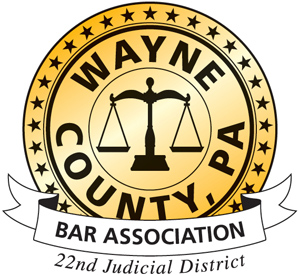What is Real Estate and Real Property Law?
The legal definition of real estate or real property is land and the buildings on it. Real estate law governs who may own and use the land.
This simple concept includes a wide range of different legal disciplines. First, real estate may be either residential or commercial. It can be owned by one person but used by another through rental arrangements. Land can be bought or sold, and due to its high value, there are many local laws that ensure real estate transactions are properly performed and recorded. Land may also pass between family members through estate planning, or may be owned by more than one person. Finally, state and local governments have rules concerning the purposes for which land may be used — for example, each plot of land must be used according to local zoning laws, and landowners may not damage the surrounding environment.
Real estate law is a branch of civil law that covers the right to possess, use, and enjoy land and the permanent man-made additions attached to it. It directly or indirectly impacts most of us on a daily basis, affecting homeowners, renters, landlords, home buyers and home sellers.
Terms to Know
- Title: A legal term describing who officially owns the land.
- Mortgage: A loan that covers the price of a house. The new homeowner must give the lender partial ownership of the house as collateral.
- Foreclosure: The process by which the lender takes control of a house if the owner fails to pay back the mortgage.
- Closing: The meeting in which ownership of real estate is officially transferred.
- Escrow: Money or property held by a third, disinterested party for safekeeping.
- Real Estate Agent: A professional licensed to negotiate and conduct real estate transactions.
Practice Area Notes
Real Estate attorneys are not legally required at every transaction, however, hiring one can be very useful for the average homebuyers. First, real estate attorneys can review the house’s transaction history and title to ensure that the house is able to be sold and that no past owners will come back claiming to still own the house. Second, many attorneys can advise homeowners regarding their mortgaging options. Third, attorneys can help review the contract of sale to make sure there it is fair to all parties. Most real estate attorneys charge an hourly fee, although some charge a flat fee for their services.
Related Practice Areas
- Tax Law: Having real estate, particularly real estate that is mortgaged, has a big impact on most family’s taxes. Understanding the tax code can prevent families from overpaying on their taxes.
- Landlord Tenant Law: Landlord tenant law covers the law of renting real estate, including leases, rent, and eviction for both residential and commercial tenants. Many lawyers consider it a part of real estate law.
- Accidents and Injuries: Homeowners may be liable for injuries sustained on their property.
- Estate Planning: Some people are very concerned about keeping real estate within the family. Estate planning attorneys can help them achieve that goal.
- Insurance Law: Most landowners have homeowner’s insurance, which protects their property against various types of damage.



